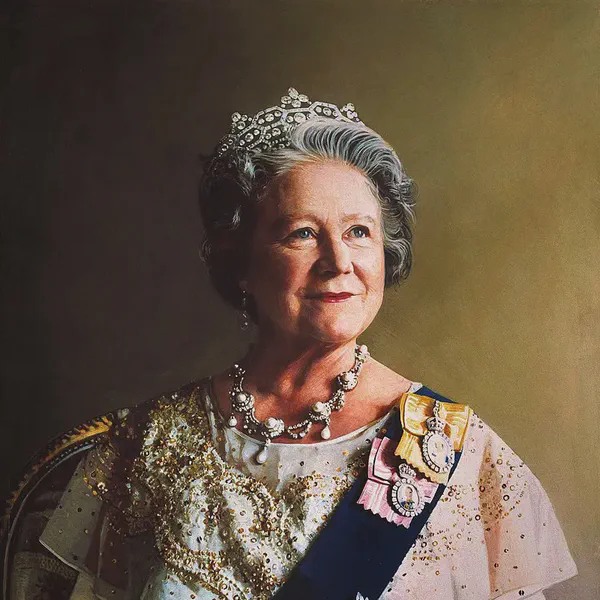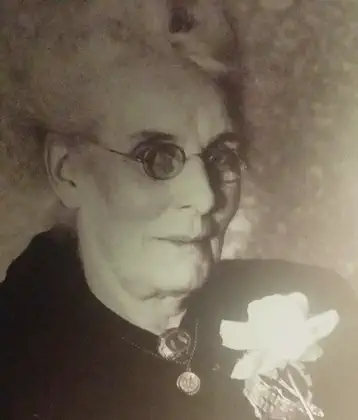On August 04, 1900 in Celtic History
Elizabeth bowes lyon, the future queen elizabeth, the queen mother, born.

Elizabeth Bowes-Lyon, who would later become Queen Elizabeth, the Queen Mother, was born on August 4, 1900, in London, England. She played a significant role in British history, both as the wife of King George VI and as the mother of Queen Elizabeth II. Her life spanned a century of immense change, and she became one of the most beloved members of the British royal family.
Early Life and Family Background
- Birth and Family: Elizabeth Angela Marguerite Bowes-Lyon was born into an aristocratic family. She was the ninth of ten children of Claude Bowes-Lyon, 14th Earl of Strathmore and Kinghorne, and his wife, Cecilia Cavendish-Bentinck. The Bowes-Lyon family had deep roots in both Scotland and England, with Elizabeth spending much of her childhood at Glamis Castle in Scotland.
- Education and Upbringing: Elizabeth received a private education, typical of aristocratic families of the time. She grew up in a close-knit family, known for its warmth and sense of duty. Her early life was marked by the values of service, loyalty, and resilience, which would later define her public role.
Marriage to the Duke of York
- Courtship and Marriage: In 1923, Elizabeth married Prince Albert, Duke of York, the second son of King George V and Queen Mary. Albert, known to his family as “Bertie,” was not expected to become king, and their marriage was initially seen as relatively low-key. However, the couple quickly became popular with the public due to their down-to-earth nature and commitment to royal duties.
- Duchess of York: As Duchess of York, Elizabeth supported her husband in his royal duties and became involved in various charitable activities. The couple had two daughters: Elizabeth, born in 1926, who would later become Queen Elizabeth II, and Margaret, born in 1930.
Queen Consort
- Abdication Crisis: In 1936, Elizabeth’s life changed dramatically when her brother-in-law, King Edward VIII, abdicated the throne to marry Wallis Simpson, an American divorcée. Elizabeth’s husband, Albert, became King George VI, and she became Queen Consort. This unexpected turn of events thrust Elizabeth into a more prominent and demanding public role.
- World War II: During World War II, Queen Elizabeth, alongside King George VI, became a symbol of resilience and determination for the British people. The royal couple refused to leave London during the Blitz, even when Buckingham Palace was bombed. Elizabeth’s visits to bombed areas and her support for the war effort endeared her to the public, and she became a symbol of hope and strength.
Queen Mother
- Widowhood and Continued Service: After King George VI’s death in 1952, Elizabeth took on the title of Queen Mother to avoid confusion with her daughter, Queen Elizabeth II. As Queen Mother, she continued to fulfill public duties well into her later years, maintaining a strong public presence and supporting her daughter as the new queen.
- Long Life and Popularity: The Queen Mother remained an active figure in British public life for decades. Her warmth, humor, and dedication to duty made her a beloved figure in Britain and across the Commonwealth. She celebrated her 100th birthday in 2000, a milestone that was widely celebrated.
Legacy
- Death and Legacy: Queen Elizabeth, the Queen Mother, passed away on March 30, 2002, at the age of 101. Her life and legacy continue to be remembered for her contributions to the British monarchy, her role during World War II, and her dedication to public service.
- Cultural Impact: The Queen Mother is often remembered as a symbol of the enduring British spirit, particularly during the difficult years of the war. Her influence on the modern British monarchy, particularly through her daughter, Queen Elizabeth II, and her grandson, King Charles III, has had a lasting impact on the institution.
Elizabeth Bowes-Lyon, the Queen Mother, remains one of the most cherished figures in British history, known for her grace, resilience, and unwavering commitment to her country and family.
More From This Day

calendar
1878
Birth of Margaret Pearse, teacher, politician and sister of Padraic Pearse, in Dublin
August 04, 1878


calendar
1846
The Great Southern & Western Railway line between Dublin and Carlow opens
August 04, 1846

calendar
1805
Birth in Dublin of Sir William Rowan Hamilton, mathematician and astronomer
August 04, 1805

